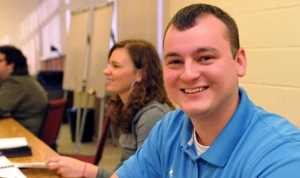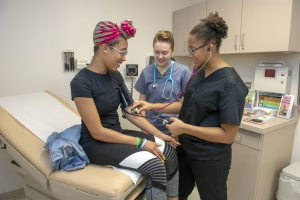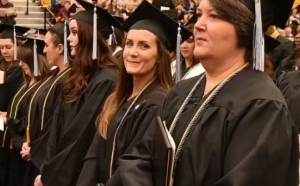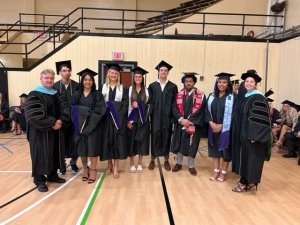
College of
Professional Studies
Our Programs
Bachelor of Science (BS) in Criminal Justice
The mission of the Department of Criminal Justice is to prepare students for roles as knowledgeable citizens and responsible criminal justice professionals in a global society.
Bachelor of Science (BS) in Education
The Department of Education prepares teachers as human developers who love to teach. The Department nurtures future teachers through a formation process to become exemplary teachers in the region, state, and nation.
Bachelor of Science (BS) in Health Science
The Department of Health and Human Performance offers degree programs in Health Science, and Sport Studies. The department is committed to preparing students in their pursuit of knowledge and skills to become responsible members of society, while encouraging life-long learning; to enhance the quality of life within a diverse society.
Bachelor of Science (BS) in Sport Studies
The Bachelor of Science Program at West Virginia State University prides itself in currently being the only college and/or university in the State of West Virginia that is recognized nationally by the NSCA’s National Education Recognition Program. This particular recognition recognizes programs at accredited institutions of higher learning that meet the national standards set forth by the NSCA.
Bachelor of Science in Nursing (BSN)
Our undergraduate Bachelor of Science in Nursing (BSN) program prepares a nurse generalist with the knowledge and skills needed to work with diverse populations in various healthcare settings. The program incorporates traditional classroom methods of instruction and state- of-the-art technologies to enrich the learning process.
Bachelor of Science in Social Work (BSW)
The Social Work Program prepares students for the beginning level of professional practice as social work generalists in a wide range of settings, with diverse populations, and with a special sense and appreciation for the peoples and institutions of West Virginia
Doctorate of Education (Ed.D.) in Leadership Studies
West Virginia State University’s Department of Leadership Studies offers two transformative programs: a Master of Education in Instructional Leadership and a Doctorate of Education (EdD) in Leadership Studies.
Master of Education in Instructional Leadership (MEIL)
The Master of Education in Instructional Leadership program creates opportunities for educators to expand their skills and advance into administrative positions. The curriculum is focused on the exploration and application of new techniques and concepts that help instructional leaders to create pathways to success for students and staff members.
Master of Science (MS) in Criminal Justice Administration
The Master of Science degree in Criminal Justice Administration prepares students for careers in the field of criminal justice and will enhance the careers of those already in the field. The program is designed to be completed within six semesters and includes a comprehensive final examination.
Master of Science (MS) in Sport Studies
The MS in Sport Studies program will develop the professional knowledge skills and dispositions of Sport Studies candidates.
No results found.
Administration
College of Professional Studies
West Virginia State University
520 Wallace Hall
PO Box 1000
Institute, West Virginia 25112-1000










